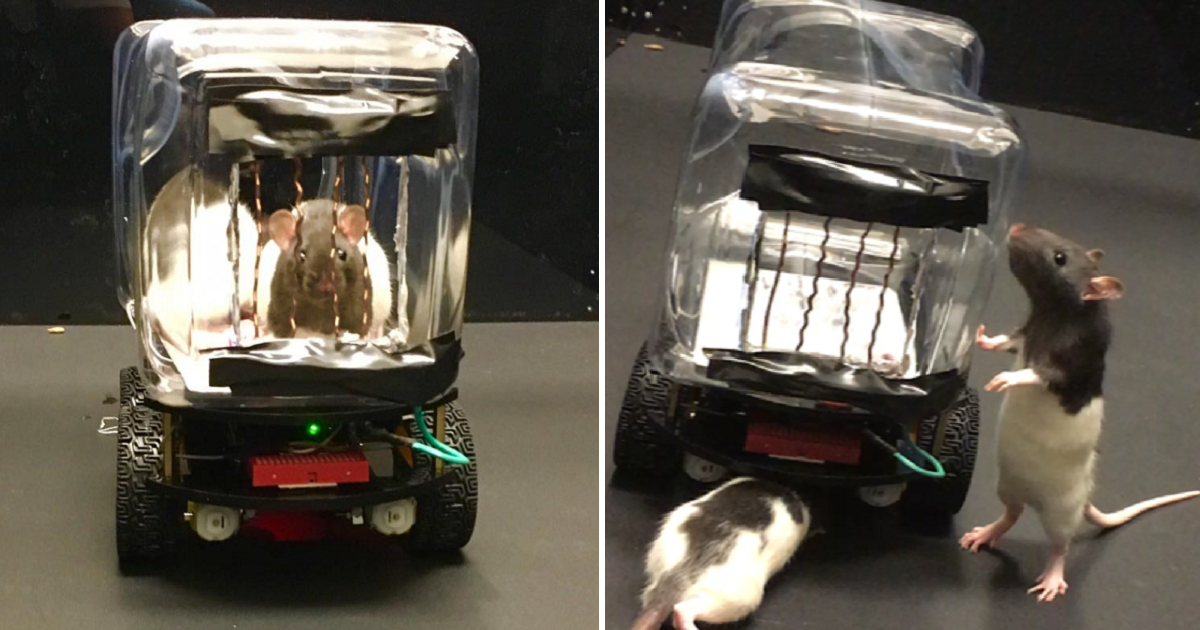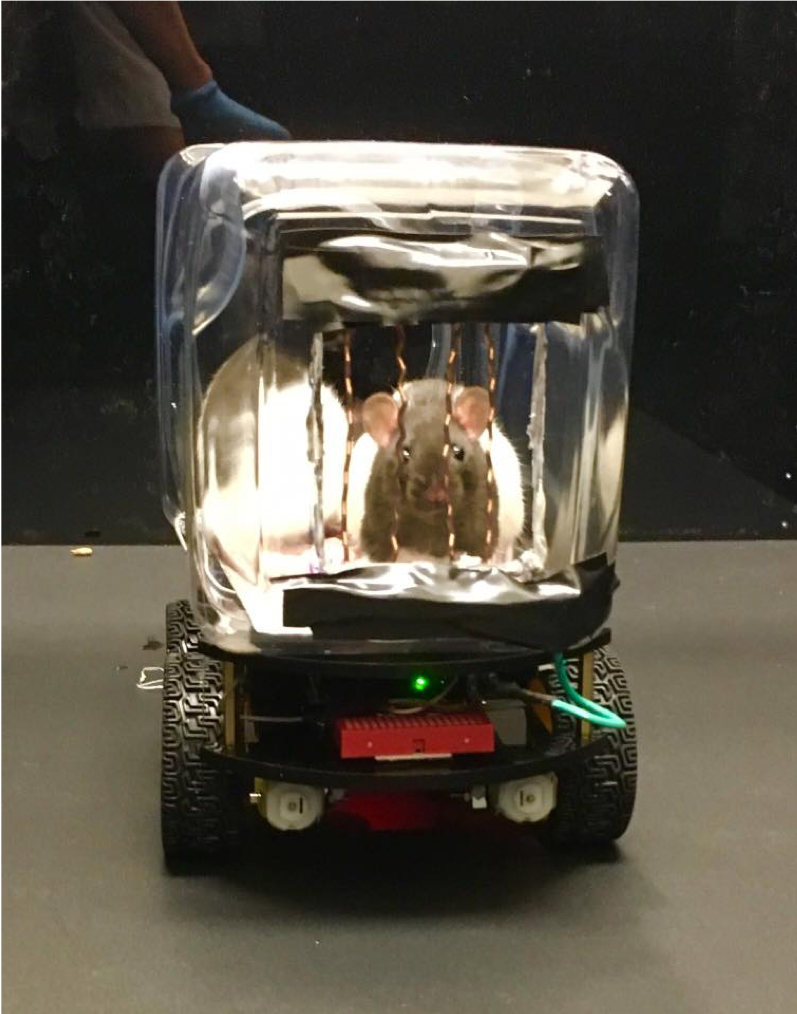
Rats in a University of Richmond lab learned to do something many Americans struggle with daily: drive themselves to pick up food.
These furry drivers were taught to navigate a custom-built rat car. The findings suggest that rats might possess a greater ability to learn tasks than previously thought.
First reported on by New Scientist, the experiment was the brainchild of the University of Richmond neuroscientist Kelly Lambert.
Lambert alongside her colleagues made a tiny car out of an empty food container and then retrofitted it with an aluminum bar as well as three copper bars for a steering wheel.
The copper bar steering wheel and aluminum floor make an electrical current that can propel the car forward. When properly trained, the rats could control the direction of the vehicle by gripping the left, middle, or right copper bar with their small little paws.

Kelly Lambert/University of Richmond
The scientists trained the rats by continually rewarding them with Froot Loops every time they touched and moved the plastic car forward.

Kelly Lambert/University of Richmond
The team gradually put the Fruit Loops further and further away, encouraging the rats to fine-tune their driving.
Not all of the eleven male and six female rats in the experiment learned the same way. Lambert sent an email saying that the type of environment the rats were surrounded by affected the way they learned.
The rats which lived in a complex, stimulating environment learned how to drive significantly faster than those living in dreary, boring laboratory settings.
Lambert said it seems as if the act of driving relaxed the rats. Like humans, Lambert noted that the rats seem to have received some satisfaction out of mastering a difficult task. Yet, unlike humans, the rats did not have to deal with traffic.
Although you will not find rats driving around on city streets anytime soon, the scientists said that the experiment was significant as it suggests rats' neuroplasticity - the ability for their brain to adapt and learn new tasks - might be far greater than people once thought.
This driving test is only the beginning. Lambert told New Scientist she believes that the tests could be made more complex, and the data gathered from observing the rats could be used to help study the effects of Parkinson's disease and depression.
Watch a video of the driving rodents below:
And here:













COMMENTS